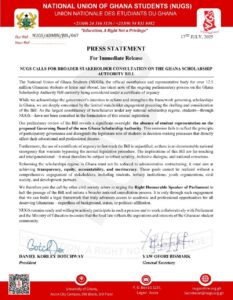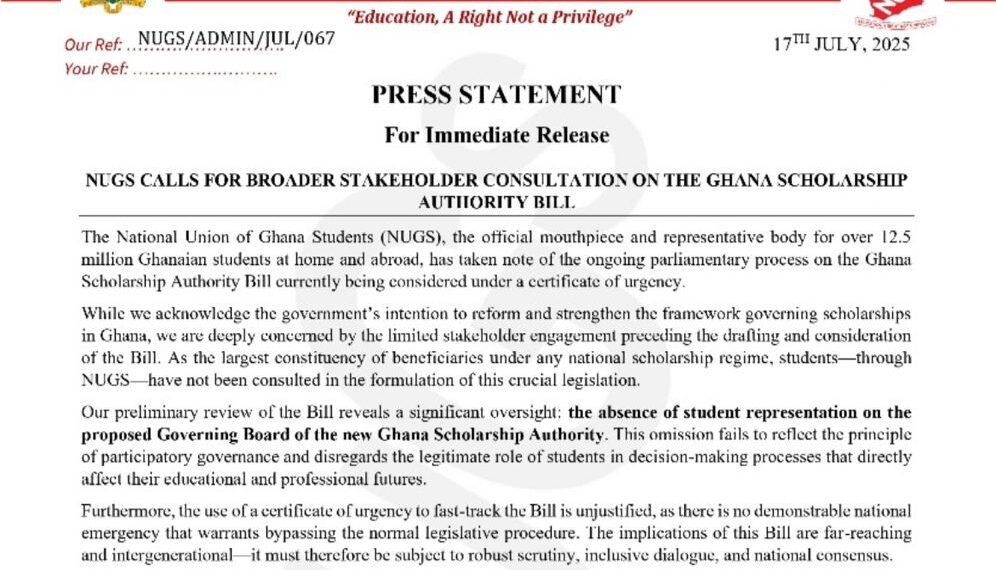The National Union of Ghana Students (NUGS), has raised objections to the Ghana Scholarship Authority Bill currently being considered in Parliament under a certificate of urgency.
In a statement, NUGS expressed deep concern over the lack of stakeholder engagement in the drafting of the Bill, particularly the exclusion of students—the primary beneficiaries of any national scholarship regime.
“As the largest constituency of beneficiaries under any national scholarship regime, students through NUGS have not been consulted in the formulation of this crucial legislation,” the union stated.
NUGS’s preliminary review of the Bill revealed a significant omission; the absence of student representation on the proposed Governing Board of the new Ghana Scholarship Authority.
The union argues that this undermines participatory governance and ignores the legitimate role of students in shaping policies that affect their educational futures.
“This omission fails to reflect the principle of participatory governance and disregards the legitimate role of students in decision-making processes”.
The union also criticized the use of a certificate of urgency to fast-track the Bill, stating that there is no demonstrable national emergency to justify bypassing normal legislative procedures.
“The implications of this Bill are far-reaching and intergenerational. It must therefore be subject to robust scrutiny, inclusive dialogue, and national consensus”.
NUGS joined other civil society organizations in urging the Speaker of Parliament to halt the passage of the Bill and initiate a broader national consultation process.
The union stressed that reforming Ghana’s scholarship regime should go beyond administrative restructuring and focus on transparency, equity, accountability, and meritocracy.
“These goals cannot be realized without comprehensive engagement of stakeholders, including students, tertiary institutions, youth organizations, civil society, and development partners,” the union stated.
“We remain ready and willing to actively participate in such a process and to work collaboratively to build a legal framework that truly advances access to academic and professional opportunities for all deserving Ghanaians—regardless of background, status, or political affiliation.”





















